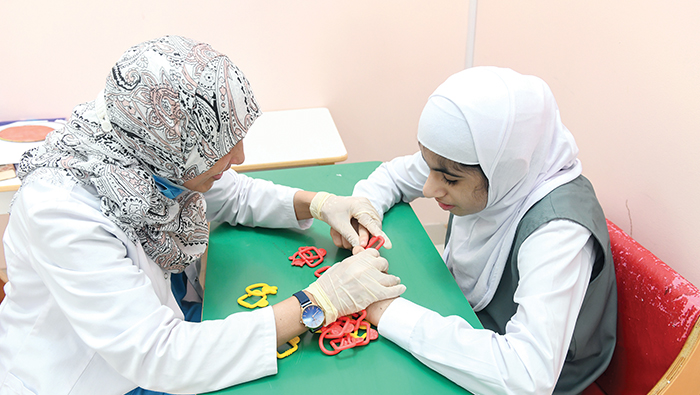
Muscat: Persons with disabilities in the Sultanate of Oman, according to the Basic Law of the State, enjoy a number of rights, including ‘integration and empowerment’, ‘care and rehabilitation’.
They are being taken care of in light of the growing call for attention to them and their contribution to social development.
The total national workforce in the Sultanate of Oman of persons with disabilities in the government and private sectors until May 2023 is 2,459, of whom 2,104 are males and 335 are females, whose disabilities range from physical, hearing, visual, intellectual, epilepsy, lack of growth, Down syndrome and autism spectrum.
Numerous experiences in different jobs in the two sectors have proven that this group is able to carry out its job duties, quickly adapt and display its energies, thus contributing to increasing productivity, and work is also good for them and their families.
Bader Freish Mohamed Al-Yahyaei, Assistant Director General of the General Directorate of Persons with Disabilities at the Ministry of Social Development, stressed the commitment of government agencies to allot 2 percent of the jobs for persons with disabilities, urging the private sector to apply this percentage in the employment of this group, indicating that the Law on the Rights of Persons with Disabilities is in its final stages, and it has been planned to increase the percentage of employment of this group in the public and private sectors.
He added to Oman News Agency (ONA) that the role of the ministry is to hone the skills of persons with disabilities to integrate them into work in the public and private sectors, and it begins early with the inclusion of children with disabilities at an early age stage after the discovery and diagnosis of disability.
He explained that there are several comprehensive rehabilitation programmes implemented by the Ministry for this category, including special education programmes for developing academic and cognitive skills, physiotherapy programmes for developing motor abilities, occupational therapy for developing motor skills, developing concentration abilities, visual motor synergy skill programmes, and treatment programmes. For speech disorders, there are rehabilitation programmes for children.
He indicated that the family is an active partner in the implementation of early rehabilitation programmes, and the development of children’s skills to integrate them into the early stages of education, so that the child can then join the educational integration projects of the Ministry of Education according to the requirements or type of disability.
He pointed out that there are cases that can be vocationally rehabilitated in private training institutes, and cases that vary according to the degree of disability (moderate or intellectual disability, autism cases, or moderate physical disability) that are unable to enroll in training or continue university studies, so vocational training is provided to them according to special criteria, including: Protection in training workshops, protection from danger, taking into account the level of security and safety, and training them under the supervision of specialists.
He explained that work is done under the supervision of specialists and provides them with more protection to compete in production, protection from danger and a reduction in working hours.